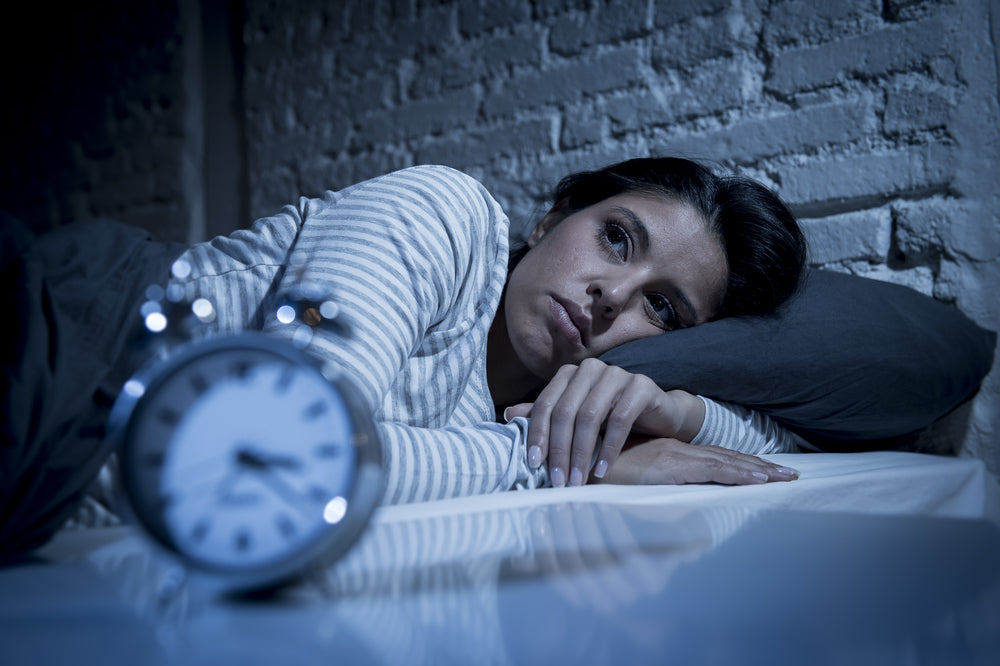Insomnia is a common sleep disorder that plagues many people around the globe. This condition is characterized by difficulty falling asleep, staying asleep, or both. Notably, insomnia can take a significant toll on a person's health, mood, productivity, and overall quality of life. In this article, we'll delve deeper into the topic of insomnia, exploring its causes, effects, and most importantly, strategies for reducing its symptoms.
Understanding Insomnia
Insomnia can be acute, occurring for a brief period, or chronic, persisting for months or even longer. Many factors can lead to insomnia, including stress, poor sleep habits, certain medications, or major life changes. According to the National Center for Biotechnology Information, "chronic insomnia is reported by 15% of adults".
In certain cases, insomnia can also be a symptom of an underlying health condition, such as heart disease or depression. Recognizing the causes is the first step towards effective treatment, and consulting with a healthcare provider is crucial in diagnosing and managing insomnia.
The Impact of Insomnia on Health

Lack of adequate sleep can lead to excessive daytime sleepiness, mood swings, irritability, and difficulties with memory and concentration. Insomnia is also linked to various long-term health problems, such as heart disease, diabetes, and depression.
Studies also indicate that chronic insomnia can increase a person's risk of developing mental health disorders, including anxiety and depression. This is a complex relationship as these mental health disorders can also exacerbate insomnia symptoms, creating a vicious cycle that can be challenging to break.
Approaches to Reduce Insomnia Symptoms
There are several strategies one can employ to alleviate the symptoms of insomnia and improve sleep quality. Here, we'll explore some of the most effective approaches:
Developing Good Sleep Hygiene
Good sleep hygiene is fundamental to improving sleep quality and alleviating insomnia symptoms. It includes maintaining a regular sleep schedule, creating a sleep-friendly environment, avoiding caffeine and alcohol close to bedtime, and engaging in relaxing activities before bed.
Cognitive Behavioral Therapy for Insomnia (CBT-I)
Cognitive Behavioral Therapy for Insomnia, or CBT-I, is considered an effective treatment for chronic insomnia. CBT-I helps people address the thoughts and behaviors that cause or worsen sleep problems and replace them with habits that promote sound sleep. Although it may require more effort than taking a pill, CBT-I has no side effects and can have long-term effects on sleep.
Medications
In some cases, doctors may recommend medications to help with insomnia. However, it's crucial to discuss the potential side effects and the possibility of dependency with a healthcare provider before beginning any medication regimen. It's also important to consider that medications usually provide a short-term solution and that behavioral changes are essential for long-term relief.
Supplements and Herbal Remedies
Certain supplements, including magnesium, lavender, and valerian root, may help to reduce insomnia symptoms. One herb that has garnered attention for its potential sleep-promoting benefits is ashwagandha. Research on ashwagandha suggests that it can help with stress, one of the key triggers of insomnia, and enhance overall sleep quality and duration. Reducing brain fog is another benefit of ashwagandha that can contribute to better sleep. Deerforia offers a range of supplements, including ashwagandha, that are designed to support overall health and wellness.
Managing Stress for Better Sleep
As we've touched on earlier, stress is a significant contributor to insomnia. Managing stress through techniques like mindfulness, deep breathing, and yoga can have a profound effect on sleep quality. Also, some people find that using herbal combinations for stress relief helps to manage stress more effectively.
The Role of Diet and Exercise

Maintaining a healthy diet and getting regular exercise can also help to reduce insomnia symptoms. Regular exercise can increase the amount of time you spend in the deep, restorative stages of sleep. It can also help to stabilize your mood and decompress your mind, akin to meditation. A balanced diet that is low in sugar and high in fiber can also support better sleep.
Frequently Asked Questions (FAQ)
How can stress contribute to insomnia?
Stress is a significant contributor to insomnia. High stress levels can lead to increased alertness and arousal, which can disrupt sleep. Stress can stem from various sources, such as work, school, health issues, or relationship problems. Learning effective stress management techniques, such as mindfulness, deep breathing, yoga, and even using herbal combinations for anxiety relief, can help manage insomnia caused by stress.
Can ashwagandha help reduce insomnia symptoms?
Yes, ashwagandha has been studied for its potential to reduce insomnia symptoms. As an adaptogenic herb, ashwagandha can help the body manage stress, a common trigger for insomnia. In addition, ashwagandha has been associated with benefits like reducing brain fog and improving sleep quality and duration, which can contribute to better sleep.
Is it safe to take sleep aids for insomnia?
While sleep aids can provide short-term relief for insomnia, they are not typically recommended for long-term use due to potential side effects and the risk of dependency. It's always best to discuss the risks and benefits with a healthcare provider before starting any new medication.
What lifestyle changes can help reduce insomnia symptoms?
Several lifestyle changes can help reduce insomnia symptoms. These include maintaining a regular sleep schedule, practicing good sleep hygiene, getting regular exercise, eating a balanced diet, and effectively managing stress. For some people, incorporating supplements like ashwagandha from Deerforia into their routine can also be beneficial.
What is Cognitive Behavioral Therapy for Insomnia (CBT-I) and how does it work?
Cognitive Behavioral Therapy for Insomnia (CBT-I) is a structured program that helps you identify and replace thoughts and behaviors that cause or worsen sleep problems with habits that promote sound sleep. CBT-I can involve techniques like stimulus control, sleep restriction, and sleep hygiene education. It's considered an effective treatment for chronic insomnia and can have long-term effects on sleep.
How can a better immune system contribute to improved sleep?
A healthy immune system can contribute to better sleep as it can better regulate the body's natural sleep-wake cycle. Conversely, inadequate sleep can weaken the immune system, leading to a higher susceptibility to infections. Thus, improving immune system functioning is important not just for general health but also for better sleep.
Conclusion
Insomnia is a widespread problem, but with the right approach, its symptoms can be effectively managed. From improving sleep hygiene to managing stress and considering the use of supplements like ashwagandha, various strategies can help improve sleep quality and reduce insomnia symptoms.
Moreover, cognitive behavioral therapy is emerging as one of the most effective approaches for treating chronic insomnia, and doctors and therapists specializing in sleep disorders can provide valuable guidance in this area. Improving immune system functioning can also help the body's natural sleep rhythm, and this is another area where supplements can play a role. Always remember that getting adequate sleep is an essential part of overall health, and addressing insomnia is a crucial step towards leading a healthier life.
Disclaimer: This information is not intended as medical advice. Always consult a healthcare provider before starting any new treatment or supplement regimen.


